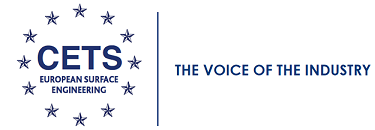Comments on the PFAS restriction proposal – Zentralverband Oberflächentechnik e.V., Germany (15/11/2023)
Summary:
This comment relates to the proposal for the restriction of PFASs submitted to ECHA on 7 February.
The restriction proposal aims to restrict the production, use and placing on the market of PFAS in
the future.
In terms of sustainable chemicals regulation, substances that pose unmanageable risks due to their
properties and use profile should be regulated based on scientific assessments. However, the ZVO
believes that a blanket regulation of entire substance groups, irrespective of the actual risk posed
by individual substances, is inappropriate. Therefore, the ZVO rejects the current form of the
restriction proposal. 10,000 various substa nces with different levels of risk are grouped together,
and for most of them , a ban is proposed as the sole regulatory action. Nevertheless, the toxicology
data is limited, and assessing the impact on industry and consumer goods is challenging.
READ MORE: PDF
Authorisation via end products and sectors – an impact assessment (26/1/2023)
Summary:
Anyone who has been following the events surrounding the authorisation of chromium trioxide under the REACH Regulation must realise that the discussion about applications for authorisation in the surface sector has become difficult to understand. Especially the so-called upstream authorisations of large consortia are facing altered requirements compared to the beginning of the process. In the document enclosed ZVO gives its point of view. CETS aisbl is supporting the content of the press release of ZVO, dated 23/11/2023.
READ MORE: PDF
The important contribution of electroplating for completing the circular economy (26/1/2023)
Summary:
Chrome-plated plastic components are an essential element for manufacturing long-lasting, sustainable and circular products. However, current regulatory restrictions under REACh are making this increasingly difficult. Key advantages over alternative technologies are being overlooked. The CETS therefore advocates that applications for the authorisation of chromium trioxide be accepted and that sufficient time is given to carry out the intended substitution.
READ MORE: PDF
Intermediate concept within the framework of the European Chemicals Legislation – applicable rulings by the European Court of Justice (ECJ) have to implemented (25/7/2022)
Summary:
According to the REACh Regulation, the obligation for authorisation does not apply to intermediates. In this context, a clear definition is provided under which conditions a substance is to be classified as an intermediate. The European Chemicals Agency (ECHA) in 2010 presented a Guidance on Intermediates, which, according to an ECJ ruling in 2017, does not correspond with the aforementioned definition and does not reflect the intention of REACh. Despite this judgement, the enforcement of the concept of intermediates has not been changed. Therefore, the surface treatment sector has for several years been advocating for the correct interpretation and implementation of the intermediates concept.
In the context of the upcoming revision of REACh, the European Commission (COM) aims to make adaptions to the existing definition. For the 45th meeting of Competent Authorities for REACh and CLP (CARACAL) on 06 July 2022, a proposal was presented regarding possible clarifications and changes to the REACh provisions on intermediates. The European Committee for Surface Treatment (CETS) would like to provide comments on some of the key aspects of the proposal.
READ MORE: PDF
